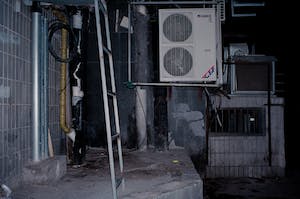How Does Air Conditioning Work?
by siteadmin

Understanding the operation of air conditioning is important to selecting a system that is effective and meets your individual needs.
Air conditioners convert liquid refrigeration to gas for cooling and then back again, using three times more energy than the compressor can move.
Refrigerant
Refrigerator fluid plays a vital role in the operation of air conditioning. It absorbs indoor heat and dissipates it outside.
The refrigerator fluid has a lower vaporization point than water. This allows it to evaporate quickly and efficiently, which requires less energy to transfer heat from the inside to the outside.
Compression is part of the refrigeration process. A compressor compresses the liquid refrigerant into a gas, increasing its temperature by 1oF.
The refrigeration gas refrigerant is then transported to a condenser. This contains fans that circulate the refrigerant around its pipes to cool it.
Once the refrigerant reaches the temperature required by your home’s refrigeration system, the refrigerant returns to the compressor. The cycle continues until a metering device on your home confirms that the temperature in your house is exactly what you wanted.
Compressor
Compressors play a vital role in the efficient operation of air conditioning systems. By pumping the refrigerant into your system, it allows it to absorb and release heat outside. Without compressors the home temperature would never be adjustable and would always cool to a preset point.
The compressor is made of metal and has two openings. Its condenser coil sends out pressurized refrigeration through one, while the other takes it from an evaporator. There are different types of compressors. These include reciprocating and scroll models.
Reed valves regulate the entry and outflow of refrigerant gases in a compressor. For them to work effectively, they must be firmly installed. An incorrectly seated intake valve could leak refrigerant into the low pressure system and increase low side pressure, while decreasing cooling.
Condenser
Condensers are an important component in AC systems, but they are often overlooked. This unit, which is usually located on your roof, yard or garden, works to cool down your home depending on the season by absorbing and dissipating any heat.
Your air conditioning compressor receives gas and converts it into liquid using heat transfer principle – when something gets hot, its energy always goes to cooler substances who absorb it better than it.
By comparing the temperature of the refrigerant with that of outside air, you can easily determine its temperature. If it is outside the expected parameters, that means its cooling capacity has been compromised and could cause issues with your AC unit.
Contacting professionals is recommended if you notice that your condenser is acting up. It can help prevent future issues. It may also be beneficial for older AC units to replace key parts like condensers.
Evaporator
Evaporators coils, which work with condenser units to provide heating and cooling in your home, are a vital part of an air conditioning system.
Change of state occurs when liquid refrigerant entering an evaporator coil rapidly transforms into vapor as it absorbs heat from the surrounding area.
The evaporator coils of any air conditioner are crucial to its operation. If they do not receive enough refrigeration refrigerant to expand, the cooling process will be compromised and you'll waste electricity.
For coils to perform optimally, they must be free of dirt and grime. Any buildup can affect their ability absorb and dissipate the heat efficiently. This will increase your energy bills, and decrease indoor comfort.
https://www.hvacsaltlakecityut.com/
contractors hvac salt lake city
Understanding the operation of air conditioning is important to selecting a system that is effective and meets your individual needs. Air conditioners convert liquid refrigeration to gas for cooling and then back again, using three times more energy than the compressor can move. Refrigerant Refrigerator fluid plays a vital role in the operation of air…
Recent Posts
- Leading the Way in Air Conditioning Services in Provo, UT
- The Amp Solar Company: Illuminating Salt Lake City with Sustainable Energy Solutions
- Nathan Premier Basement Finishing: Elevating Home Spaces in Lehi
- Sacramento Roof Company: Elevating Standards in Roofing Excellence in Sacramento
- Utah Injury Pros: Leading Advocates for Motorcycle Accident Victims in Salt Lake City and Provo
